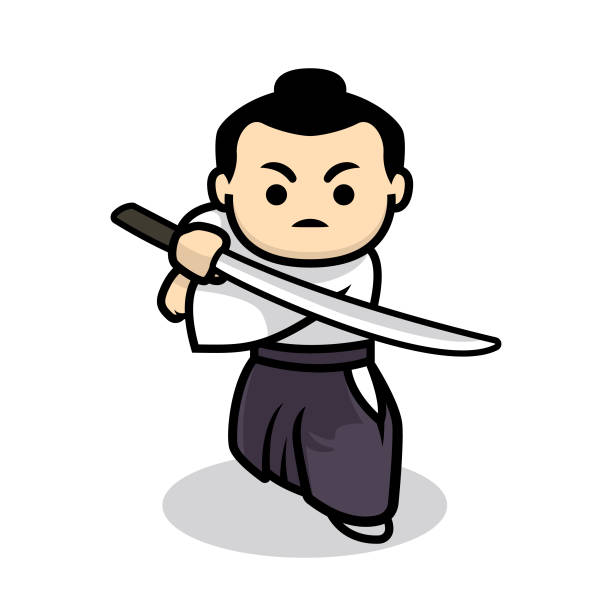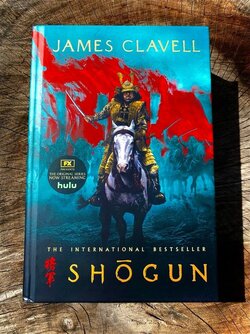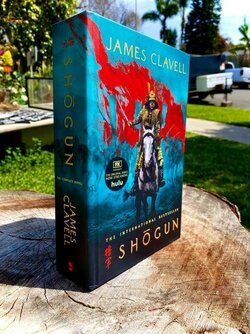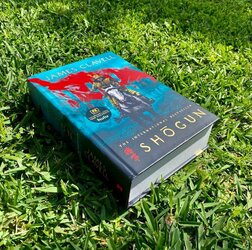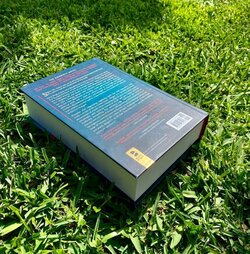A biography of Rollo May written by my neighbor, Robert Abzug. It is an engaging read.
You are using an out of date browser. It may not display this or other websites correctly.
You should upgrade or use an alternative browser.
You should upgrade or use an alternative browser.
What Are You Reading?
- Thread starter TimmyBoston
- Start date
There is action, western, frontier type stuff.I enjoy reading when there's series. Is this action?
Description from the publisher:
“An epic spanning multiple generations in one frontier family, the Sackett series stands at the forefront of Louis L’Amour’s sprawling canon of the American West. Led by an unforgettable trio of brothers, this one-of-a-kind clan embodies the frontier ideals of toughness, determination, and justice that have captured the imagination of millions.
Hunt one Sackett and you hunt ’em all. Those are the words of the fiercely loyal and notoriously fierce Sacketts. From the courageous brothers Tell, Orrin, and Tyrel, who bring law and order from Santa Fe to Montana, to Orlando the renowned boxer and Lango the rebellious drifter, the whole clan is no stranger to trouble. But the Sackett boys aren’t out to make a reputation—it just happens that way.”
Link to the Author’s webpage on the series: Sackett Series
I’m really enjoying all of these! I plan on finishing the series this year!
Going by Amazon and Good Reads reviews, folks seem to really like this one.I really enjoyed that one. A good book is a good book. I think it's worth the wait, for those who are pending the novel.
View attachment 1813595
“A brilliant and poignant history of the friendship between two great war poets, Siegfried Sassoon and Wilfred Owen, alongside a narrative investigation of the origins of PTSD and the literary response to World War I”
No matter the quantity or quality of written material or film, I don’t think we can fully grasp the depth of brutality experienced by soldiers in WW1. And we still grapple with the consequences in so many ways - emotional, political, economic to name but a few.
Have you read either Sassoon or Owen's poetry? I enjoy poetry quite a bit, and that book sounds intriguing. I'm debating if I would have more interest in just reading their poems, opposed to reading a novel about the gentleman themselves.
I have read a few of Sassoon’s works but poetry in general has never clicked for me (except for Kipling). But after reading this, I’ll search out some from both. It’s not a novel but a deep dive into the efforts of two British doctors that opened a facility near Edinburgh for the treatment of “shell shock” as PTSD was known then. Groundbreaking. I found it fascinating. Some poetry is included but you may want to turn elsewhere for their writings.Have you read either Sassoon or Owen's poetry? I enjoy poetry quite a bit, and that book sounds intriguing. I'm debating if I would have more interest in just reading their poems, opposed to reading a novel about the gentleman themselves.
I have read a few of Sassoon’s works but poetry in general has never clicked for me (except for Kipling). But after reading this, I’ll search out some from both. It’s not a novel but a deep dive into the efforts of two British doctors that opened a facility near Edinburgh for the treatment of “shell shock” as PTSD was known then. Groundbreaking. I found it fascinating. Some poetry is included but you may want to turn elsewhere for their writings.
Thanks! I looked up a couple of quick reviews of the book, but didn't get into enough of a description of what exactly the book was about.
Maybe I'm broke.
I think you'll get there if you just be patient. My resurgence into reading was not overnight. It sounds like your interest has been piqued in different books and that's great. The fact that you're not being discouraged by not being into your short stories book or The Old Man in The Sea is a positive. I think most people have started books they thought they were going to like, but ended up abandoning. You might just need to find something that stimulates the desire to keep picking up the book.
View attachment 1813595
“A brilliant and poignant history of the friendship between two great war poets, Siegfried Sassoon and Wilfred Owen, alongside a narrative investigation of the origins of PTSD and the literary response to World War I”
No matter the quantity or quality of written material or film, I don’t think we can fully grasp the depth of brutality experienced by soldiers in WW1. And we still grapple with the consequences in so many ways - emotional, political, economic to name but a few.
I would suggest reading Robert Graves' Goodbye To All That. A superb WW1 autobiography. It was written in 1929 I think, so it's 'fresh' in recall.Thanks! I looked up a couple of quick reviews of the book, but didn't get into enough of a description of what exactly the book was about.
Graves was a captain in the Welch Regiment and saw three years at the front. It is a superb read. He knew both Sassoon and Owen, and his independent observations of them are invaluable. Sassoon wrote a public condemnation and critique of the war in 1917 which resulted in him being sent to Craiglockhart for treatment. It was either that or a court martial. He met Owen there.
Graves knew Sassoon especially well and he gives interesting additional information.
Graves was borderline 'shell shock' although he never seems to have cracked, he suffered from PTSD for the remainder of his life. He was an excellent intellectual in the classics and historical author. He wrote I Claudius and other great works.
Interestingly he struck up an unlikely friendship with Terence Milligan aka Spike Milligan, the famous Anglo Irish author, poet and comedian late in his life. Milligan was severely shell shocked on the Volturno River front in Italy in January 1944 and the effects profoundly marked him for the rest of his life.
I would recommend Milligans war memoirs also.
Max Egremont wrote the definitive biography of Sassoon. It's a powerful book, but heavy going.
Last edited:
Thanks for the kind wordsI think you'll get there if you just be patient. My resurgence into reading was not overnight. It sounds like your interest has been piqued in different books and that's great. The fact that you're not being discouraged by not being into your short stories book or The Old Man in The Sea is a positive. I think most people have started books they thought they were going to like, but ended up abandoning. You might just need to find something that stimulates the desire to keep picking up the book.
@Jmp63 thank you  .
.
@The Count of Merkur Cristo nice. Is that based on the old movie or the new series coming out? Please and thank you .
.
@The Count of Merkur Cristo nice. Is that based on the old movie or the new series coming out? Please and thank you
Thanks for the kind words.
I think CX is right. I think a lot of folks think they are going to like Hemingway and don't. That he is going to read like a modern author, very crisp, and direct, and to have an appealing masculinity. To me he is rather long winded and dark, and not an easy or particularly likeable author. I think he is trying, rather self-consciously, to write real literature, and that makes him seem heavy and sometimes pretentious, self-important. Hemingway is said to have been very influential as to a more spare writing style. I think those who came after did it better. When Hemingway really works, it really is literature. The prose is powerful and conveys meaning on multiple, nuanced levels. But he is not an easy author. You would probably really dislike Faulkner!
Thanks. I'm not understanding this word, even after looking it up.prose
I’m not sure if you saw this when looking up Prose but the first paragraph sums up prose nicely. It’s basically writing in the same way that a person talks.Thanks. I'm not understanding this word, even after looking it up.
Prose - Wikipedia
I agree with this 100%. I used to be a voracious reader when still working on the ambulance. Hours of sitting on your butt waiting for a call makes for plenty of time to read. I could never read Hemingway unless I forced myself to. The stories themselves are great, but the way they’re written seems tedious, long winded, and almost boring at times.To me he is rather long winded and dark, and not an easy or particularly likeable author.
Thanks @Whisky that helps.
Whisky provides a nice definition, but I would say that prose often simply means written text not meant to be poetry. (I do not think I have the ability to talk about, say, "prose poetry"! David Foster Wallace had a lot to say about that.)Thanks. I'm not understanding this word, even after looking it up.
Above I really used "prose" to simply refer to the text written by Hemingway.
Well-said. I agree. Yet we read this type of thing about his writing, this from Wikipedia:I agree with this 100%. I used to be a voracious reader when still working on the ambulance. Hours of sitting on your butt waiting for a call makes for plenty of time to read. I could never read Hemingway unless I forced myself to. The stories themselves are great, but the way they’re written seems tedious, long winded, and almost boring at times.
"The New York Times wrote in 1926 of Hemingway's first novel, "No amount of analysis can convey the quality of The Sun Also Rises. It is a truly gripping story, told in a lean, hard, athletic narrative prose that puts more literary English to shame." The Sun Also Rises is written in the spare, tight prose that made Hemingway famous, and, according to James Nagel, "changed the nature of American writing". . . . After World War I, he and other modernists "lost faith in the central institutions of Western civilization" by reacting against the elaborate style of 19th-century writers and by creating a style "in which meaning is established through dialogue, through action, and silences—a fiction in which nothing crucial—or at least very little—is stated explicitly.""
All literature before 1926 must have been truly turgid, but seems to me I have read quite a lot that was not so bad. I, like you, do not quite get the description of EH prose as "lean, hard, athletic . . . ." I do not think it is by current standards. I get a style "in which meaning is established through dialogue, through action, and silences—a fiction in which nothing crucial—or at least very little—is stated explicitly." Sometimes that works in spades and is rather magical. It has been a long time since I have read "Big Two-Hearted River," an EH short story, but my recollection is that it worked there. EH describing a man fishing somehow conveys deep grief on the man's part from horrific prior experiences without making any explicit references. But other times, trying to convey everything crucial through just dialogue, action, and silences, makes for a lot of words that are often hard to follow, I think. And the style can come across as overly mannered.
I think part of the rub is that folks read EH thinking they are going to get "lean, hard, athletic . . . ." prose, and when they do not they are disappointed.
I have not been able to locate the darn thing, but David Foster Wallace has an essay on the value of difficult books/writing that I thought was really good, when I read it long ago. I think Hemingway is more difficult that people often say. I do suspect that it often rewards those pushing through that difficulty.
Awesome thanksprose often simply means written text not meant to be poetry
Connelly is great! I love the Bosch series - the books are better but the Amazon series does a great job with the material. I haven’t jumped into the LL series but I’m gonna fix that.View attachment 1814897
Finally got around to this one. Haller is NOT the lawyer I was expecting in this series. That being said, I grew to enjoy him and enjoyed the story that Connelly told. I can see myself continuing this series. May even give the Netflix show a try.
I finished reading The Tenant Class a few days ago, but life has been busy so I am only getting around to posting about now.
The base premise of this ~100p book is that there is no housing crisis in Canada (but the same could apply to the US as well), but rather that the system is working as designed to help the rich get richer and keeping the poor, poor.
His solution is that tenants need to formally unionize or at least form organizations and, when confronted by bad landlords who either raise rents or don't perform repairs, go on rent strikes. "Raising rents" means exactly that, even by 0.01%, and even more so, if the rent is more than the cost to upkeep the property (taxes, insurance, and maintenance), then a rent strike is in order. The author keeps referencing Marx and Marxist doctrine, so that should help you understand his underlying perspective.
He also advocates the government buying homes on the retail market and turning them into affordable housing rental units.
Verdict: Not worth the read as it is not a discussion but more like a rant

Here's a sample...

The base premise of this ~100p book is that there is no housing crisis in Canada (but the same could apply to the US as well), but rather that the system is working as designed to help the rich get richer and keeping the poor, poor.
His solution is that tenants need to formally unionize or at least form organizations and, when confronted by bad landlords who either raise rents or don't perform repairs, go on rent strikes. "Raising rents" means exactly that, even by 0.01%, and even more so, if the rent is more than the cost to upkeep the property (taxes, insurance, and maintenance), then a rent strike is in order. The author keeps referencing Marx and Marxist doctrine, so that should help you understand his underlying perspective.
He also advocates the government buying homes on the retail market and turning them into affordable housing rental units.
Verdict: Not worth the read as it is not a discussion but more like a rant
Here's a sample...
Similar threads
- Replies
- 211
- Views
- 9K
- Replies
- 4
- Views
- 649
- Replies
- 35
- Views
- 2K
- Replies
- 39
- Views
- 2K
- Replies
- 2
- Views
- 598





